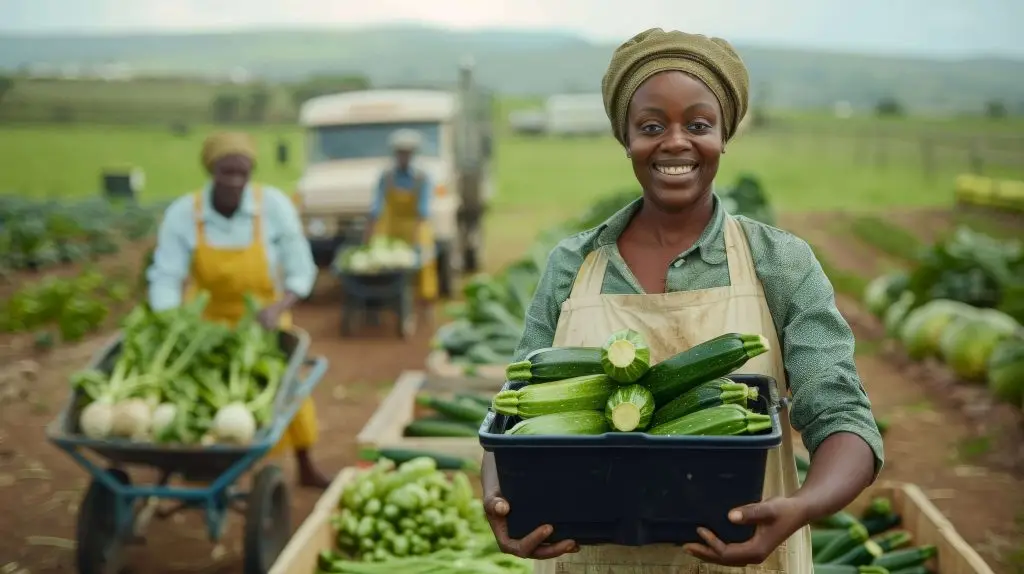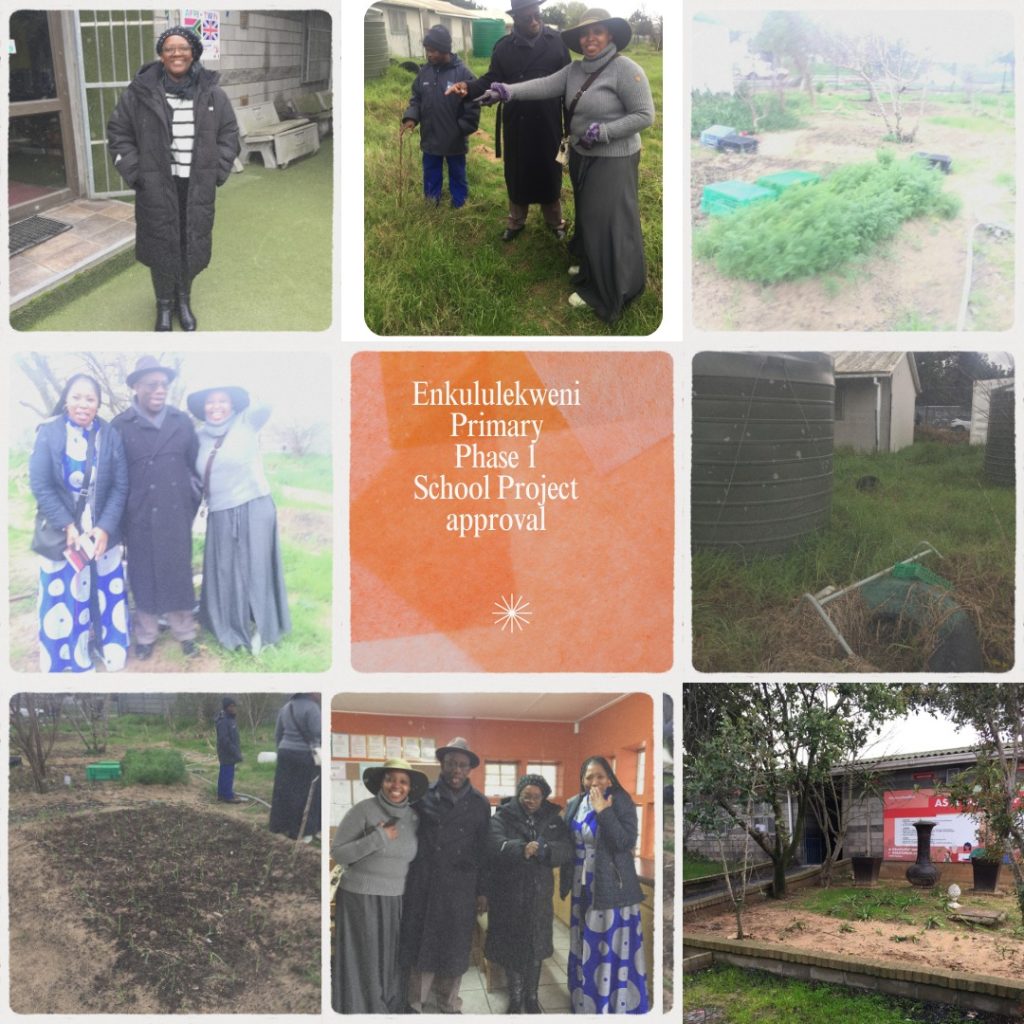Sustainable Agriculture in South Africa: Pathways to a Resilient Future. Sustainable agriculture has become a critical topic of discussion in South Africa, where the agricultural sector is not only a cornerstone of the economy but also deeply intertwined with social development and environmental conservation. South Africa, with its diverse climates and ecosystems, faces unique challenges in ensuring that its agricultural practices remain sustainable while meeting the growing demands for food security, economic development, and environmental protection. Sustainable agriculture offers an approach that balances the need for agricultural productivity with the protection of natural resources, resilience to climate change, and the promotion of social equity.
The Importance of Sustainable Agriculture in South Africa
Agriculture in South Africa plays a pivotal role in the country’s economy, contributing significantly to GDP and employment. However, it also faces significant challenges, including water scarcity, soil degradation, and the impacts of climate change, all of which threaten the long-term viability of the sector. With a growing population and increased urbanization, the demand for food is rising, putting additional pressure on agricultural systems that are already stretched.
Sustainable agriculture aims to address these challenges by promoting practices that protect natural resources, enhance biodiversity, and ensure the long-term viability of farming. It involves a holistic approach that includes reducing the reliance on chemical inputs, improving water and soil management, and supporting small-scale farmers. By embracing sustainable practices, South Africa can create a more resilient agricultural sector that contributes to economic growth, environmental sustainability, and social development.
Key Principles of Sustainable Agriculture
Sustainable agriculture is based on several key principles that guide farming practices toward a more sustainable future:
- Environmental Stewardship: Sustainable agriculture prioritizes the protection and restoration of natural ecosystems. This includes practices such as conserving water, reducing soil erosion, protecting biodiversity, and minimizing the use of harmful pesticides and fertilizers.
- Resource Efficiency: Efficient use of natural resources, particularly water and energy, is a cornerstone of sustainable farming. In South Africa, where water is a scarce resource, efficient irrigation techniques, water harvesting, and the use of drought-resistant crops are essential for sustainable agriculture.
- Soil Health: Healthy soils are the foundation of productive agriculture. Sustainable farming practices focus on maintaining and improving soil health through methods such as crop rotation, cover cropping, reduced tillage, and organic fertilization.
- Resilience to Climate Change: Climate change poses a significant threat to agriculture in South Africa, with increasing temperatures, changing rainfall patterns, and more frequent extreme weather events. Sustainable agriculture promotes practices that enhance the resilience of farming systems to climate change, such as agroforestry, mixed farming systems, and climate-smart agriculture.
- Social Equity and Economic Viability: Sustainable agriculture also encompasses social and economic dimensions. It promotes the empowerment of small-scale farmers, fair labor practices, and equitable access to resources and markets. Ensuring that farming remains economically viable for all, particularly for marginalized communities, is key to achieving long-term sustainability.

Challenges to Achieving Sustainable Agriculture in South Africa
While the principles of sustainable agriculture are clear, implementing them in practice is not without its challenges. South Africa faces several obstacles in transitioning to more sustainable agricultural practices.
- Water Scarcity: South Africa is one of the driest countries in the world, and water scarcity is a major challenge for agriculture. The agricultural sector accounts for a significant portion of the country’s water use, and unsustainable water management practices have led to the depletion of water resources in some regions. Implementing water-efficient farming techniques and managing water resources sustainably are critical for the future of agriculture in the country.
- Soil Degradation: Soil degradation, including erosion, nutrient depletion, and salinization, is a significant problem in many parts of South Africa. Poor land management practices, overgrazing, and deforestation have contributed to the degradation of soils, reducing agricultural productivity and threatening food security. Sustainable soil management practices are needed to restore and protect the country’s soils.
- Climate Change: South Africa is highly vulnerable to the impacts of climate change, which are already being felt in the form of more frequent droughts, heatwaves, and changing rainfall patterns. These changes are putting additional stress on agricultural systems, particularly in regions that are already water-scarce. Building resilience to climate change through sustainable practices is essential for the future of agriculture in the country.
- Access to Resources and Markets: Small-scale farmers, who make up a significant portion of South Africa’s agricultural sector, often face challenges in accessing resources such as land, water, finance, and markets. This limits their ability to adopt sustainable practices and invest in more resilient farming systems. Supporting small-scale farmers through access to resources, training, and market opportunities is critical for promoting sustainable agriculture.
- Poverty and Inequality: South Africa continues to grapple with high levels of poverty and inequality, particularly in rural areas where agriculture is a primary source of livelihood. Sustainable agriculture must address these social challenges by promoting inclusive development, improving rural livelihoods, and ensuring that the benefits of sustainable farming practices are shared equitably.
Success Stories in Sustainable Agriculture in South Africa
Despite these challenges, there are several examples of successful sustainable agriculture initiatives in South Africa that demonstrate the potential of this approach to transform the agricultural sector.
- Agroecology in the Eastern Cape: In the Eastern Cape, a region known for its rural poverty and reliance on small-scale farming, agroecology has emerged as a promising approach to sustainable agriculture. Agroecology emphasizes the use of ecological principles in farming, such as biodiversity, natural pest control, and organic fertilization. By integrating these principles, farmers in the Eastern Cape have improved their productivity, resilience, and income while protecting the environment.
- Water-Efficient Farming in the Western Cape: The Western Cape, known for its wine production, has been at the forefront of adopting water-efficient farming practices. Faced with severe droughts in recent years, farmers in the region have implemented techniques such as drip irrigation, water harvesting, and the use of drought-resistant crops. These practices have helped to reduce water use while maintaining agricultural productivity.
- Climate-Smart Agriculture in Limpopo: Limpopo, one of South Africa’s most vulnerable provinces to climate change, has seen the adoption of climate-smart agriculture practices. These include the use of climate-resilient crops, conservation agriculture, and agroforestry. These practices help farmers adapt to changing weather patterns and improve the resilience of their farming systems to climate shocks.
- Organic Farming in KwaZulu-Natal: Organic farming has gained traction in KwaZulu-Natal, where farmers are moving away from chemical-intensive agriculture to more sustainable practices. Organic farming involves the use of natural fertilizers, biological pest control, and crop rotations to maintain soil health and protect biodiversity. This shift has not only improved the environmental sustainability of farming in the region but also opened up new market opportunities for organic produce.
The Future of Sustainable Agriculture in South Africa
The future of agriculture in South Africa depends on the successful integration of sustainable practices across the sector. As the country faces increasing challenges from climate change, water scarcity, and soil degradation, the need for sustainable agriculture has never been more urgent.
To achieve this, the government, private sector, and civil society must work together to create an enabling environment for sustainable agriculture. This includes investing in research and development, providing support and training for farmers, implementing policies that promote sustainability, and creating market opportunities for sustainable products.
Education and awareness are also crucial in promoting sustainable agriculture. Farmers need access to information and resources that can help them adopt sustainable practices, while consumers need to be informed about the benefits of sustainable agriculture and the importance of supporting sustainable products.
Ultimately, sustainable agriculture in South Africa is about creating a resilient and inclusive agricultural sector that can meet the needs of the present without compromising the ability of future generations to meet their own needs. By embracing sustainable practices, South Africa can build a more secure and sustainable future for its people and the planet.

